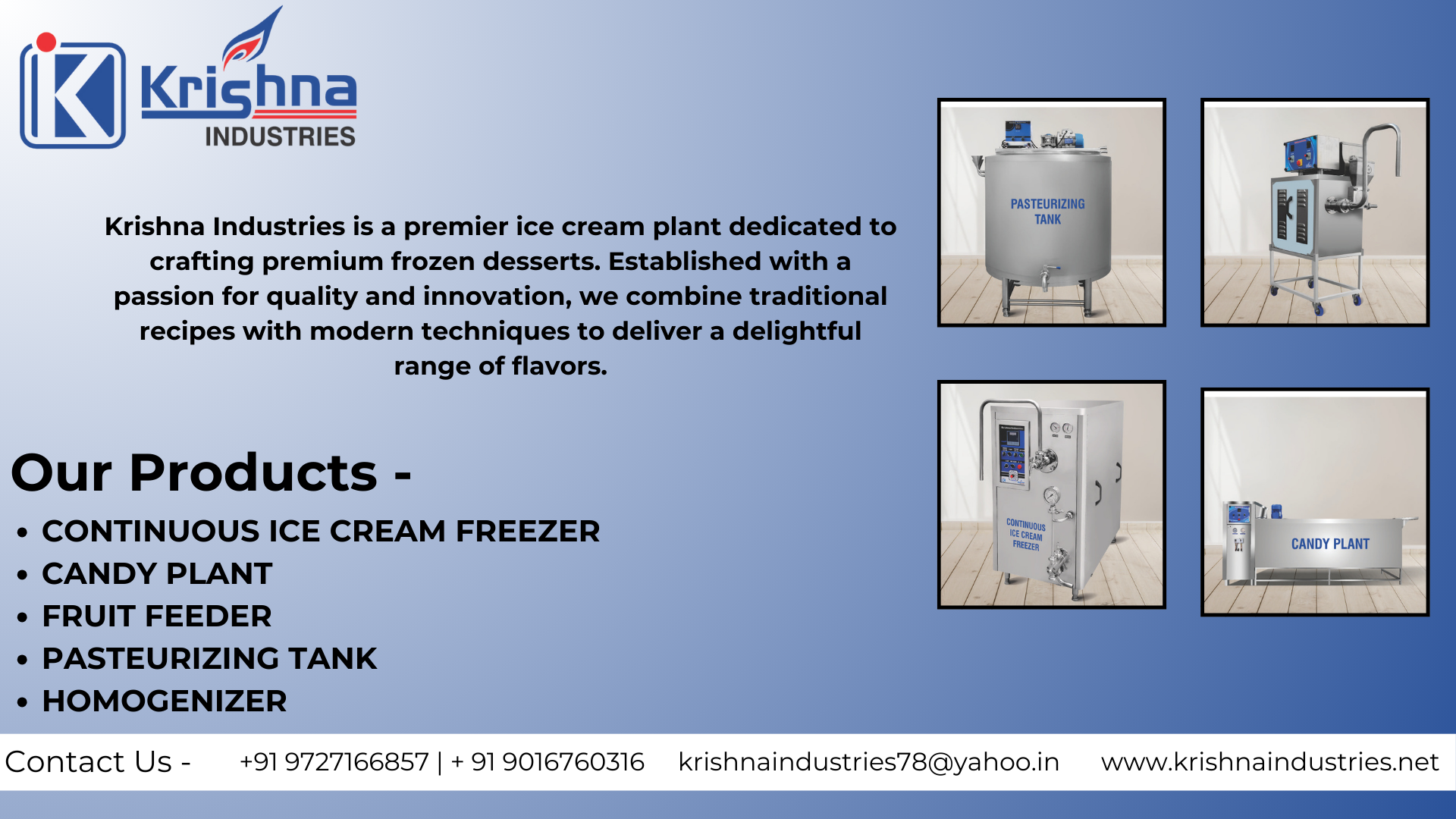Industrial Pasteurization Tank
Industrial Pasteurization Tank
Description
An Industrial Pasteurization Tank is a specialized stainless-steel vessel used to heat and cool liquid food products such as milk, juice, yogurt, and other dairy or beverage items to specific temperatures for pathogen destruction while retaining quality and flavor. This thermal processing method — pasteurization — extends shelf life, enhances food safety, and meets food regulatory requirements.
In India, these tanks are supplied by equipment manufacturers specializing in dairy, beverage, and food processing machinery, catering to both small-scale dairies and large-scale industrial processing plants.
How It’s Made – Manufacturing Process
1. Design & Specification
-
Built according to capacity (typically 100L to 10,000L), pasteurization type (batch or continuous), and process temperature (63°C–95°C).
-
Designed based on CIP (Clean-in-Place) and GMP (Good Manufacturing Practice) standards.
2. Material Selection
-
Fabricated using SS304 or SS316L stainless steel, suitable for food-grade applications.
-
Inner and outer shells are mirror-polished to avoid bacterial growth.
3. Construction
-
Consists of:
-
Inner vessel
-
Jacketed layer for hot water or steam circulation
-
Insulation layer to retain heat
-
Agitator/mixer (optional)
-
Thermowells and sensors for accurate temperature monitoring
-
4. Heating System Integration
-
Indirect heating using:
-
Hot water circulation via jacket
-
Electric or steam heating
-
-
Controlled with digital temperature controllers or PLC systems.
5. Cooling System (Optional)
-
Chilled water is circulated post-pasteurization to cool product quickly.
6. Control & Automation
-
Manual, semi-automatic, or fully automatic PLC-based control panel provided.
-
Includes alarms, timers, and temperature recorders.
Where It’s Used
-
Dairy Processing Plants – Milk, cream, buttermilk, yogurt
-
Juice and Beverage Industries – Fruit juice, flavored drinks
-
Pharmaceuticals & Biotech – Liquid formulations, culture prep
-
Food Processing Units – Liquid egg, sauces, syrups
-
Breweries and Distilleries – Fermented product temperature treatment
-
Cosmetics and Chemicals – Where thermal sanitation is needed
Key Features
Digital or PLC-Based Temperature Controls – Precise monitoring
-
Double or Triple-Walled Jacketed Design – Uniform heating and cooling
-
Cooling Section (Optional) – For post-pasteurization cooling
-
Agitator/Mixer with Variable Speed Drive – Uniform product movement
-
CIP Compatible – Easy to clean and sanitize
-
Overheat & Dry Run Protection – Safety compliance
-
Batch Data Logging (Optional) – For traceability and audits
Importance
-
Destroys harmful microorganisms to ensure food safety
-
Enhances product shelf life without preservatives
-
Critical for quality control and brand reputation in consumables
-
Supports automation and scale-up in production processes
Advantages
Safe, Hygienic Operation – Food-grade design
Energy Efficient – Steam jacket or hot water circulation reduces heat loss
Versatile Use – Suitable for dairy, beverage, and cosmetic sectors
Custom Capacities – From 100 liters to 10,000+ liters
Time Saving – Automated systems reduce operator effort
Quality Retention – Controlled temperatures preserve flavor & nutrients
Sanitization Friendly – Smooth inner finish allows easy cleaning
Fully Integrated Systems – Combine heating, cooling, mixing, and control in one tank
Significance in the Indian Market
India, with its growing dairy and food processing industry, has a rising demand for automated, hygienic, and efficient pasteurization systems. Indian manufacturers offer:
-
Cost-effective alternatives to imported systems
-
Designs tailored to Indian power, water, and operational conditions
-
Local service, quick delivery, and customization for MSMEs and large-scale plants
-
Compliance with FSSAI and international food safety standards
Why Choose an Indian Supplier?
-
Localized Design – Made for Indian climatic and usage conditions
-
Availability of Spare Parts and Service
-
Customization Based on Application – Dairy, pharma, food
-
Proven Performance in Indian Dairies & Food Plants
-
Economical with Faster ROI
FAQs – Frequently Asked Questions
1. What temperatures are used for pasteurization?
2. What is the difference between batch and continuous pasteurizers?
-
Batch tanks process one load at a time.
-
Continuous systems use plate or tubular heat exchangers for large-scale, non-stop processing.
3. Can it be used for products other than milk?
Yes, it can be used for juices, syrups, sauces, beer, and pharma liquids, depending on the configuration.
4. Does it support CIP cleaning?
Yes. Most modern pasteurization tanks are CIP-ready with spray balls and drain ports.
5. What heating sources are supported?
-
Electric heater
-
Steam jacket
-
Hot water circulation
6. Is customization available?
Yes, tank capacity, agitation type, heating method, and automation level can be tailored to your needs.
Conclusion
An Industrial Pasteurization Tank is a crucial part of modern food and beverage processing lines. Whether you're operating a dairy, juice factory, brewery, or liquid food business, investing in a high-quality pasteurizer ensures hygiene, compliance, and shelf life stability.
Indian suppliers offer a reliable and cost-effective alternative to imported equipment, with the advantage of customization, local service, and scalable capacity. If your goal is to produce safe, high-quality liquid products at industrial scale, a pasteurization tank is not a luxury — it's a necessity.

